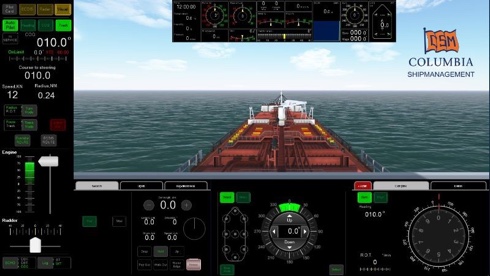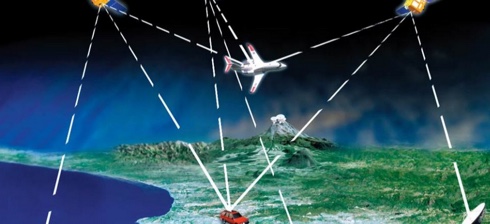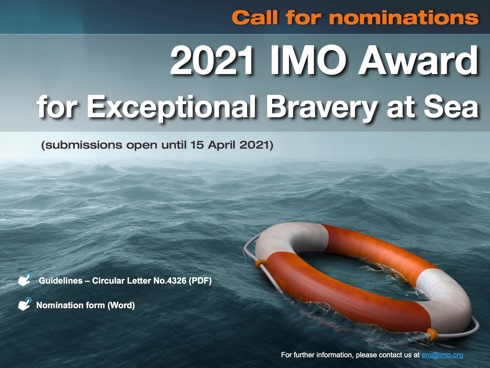IAAC annual workshop of graduate students in Systems & Control
From Moshe Idan (IAAC President): ‘Continuing the tradition of previous years, we are happy to announce that the Annual Workshop of Graduate Students in Systems & Control – GSC 2021 will take place on 3 May, 2021. This year the workshop will be organized by Prof. Rafi Linker from the Faculty of Civil and Environmental Engineering at the Technion.
At this time it is too early to determine if the event will be held on-line, at the Technion, or in some hybrid form, but, as always, it will provide a platform for exchanging ideas among students and researchers from various universities and institutions in Israel.’
Good coordination onshore needed to deter and resolve attacks on ships
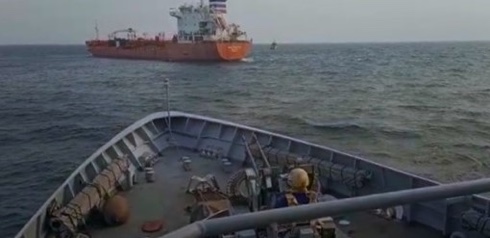
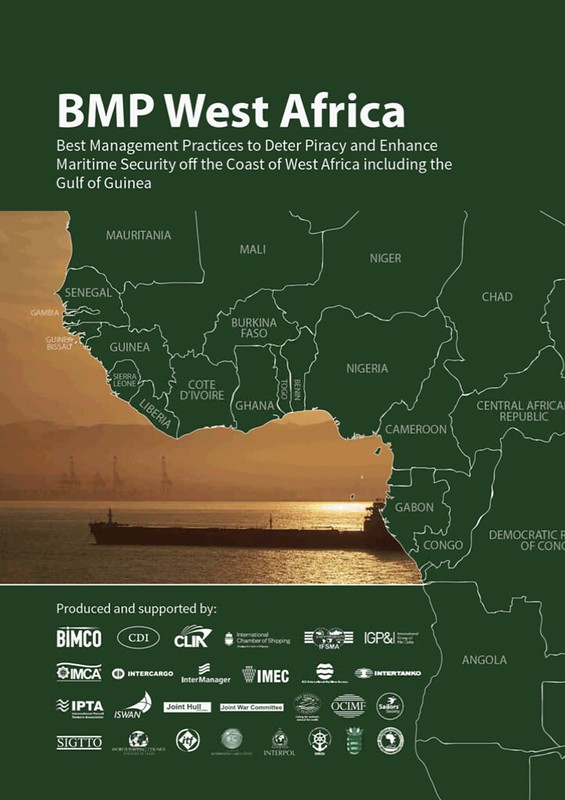
IMO Secretary-General Kitack Lim has expressed deep concern about the escalation in the number and severity of attacks on ships and crew in the Gulf of Guinea region. He insisted on the need for all stakeholders to work together to restore security and reduce the threats to the safety and security of crews and vessels operating in the region. This was reported by IMO on 15 February.
The urgency of the situation has been underlined by the attack on the container ship Mozart on 23 January 2021, which resulted in a fatality and the kidnapping of 15 seafarers.
In a circular letter (No. 4382, issued 10 February1), the Secretary-General said that IMO has been taking action to enhance the coordination of initiatives among stakeholders, including facilitating meetings with representatives of the industry, the Nigeria Maritime Administration and Safety Agency (NIMASA) and the Interregional Coordination Centre for the Implementation of Regional Strategy for Maritime Safety and Security in Central and West Africa (ICC).
The Secretary-General also highlighted that ships need to implement the IMO endorsed Best Management Practices (BMP) for West Africa (WA) to avoid, deter, delay and report attacks. The BMP cover risk assessment, ship protection measures and reporting.
The Guidance on piracy section of IMO’s maritime security webpage can be found here.
CSM signs cloud-based ship simulator partnership with Wärtsilä Voyage
At the end of January Columbia Shipmanagement (CSM) reported that it had entered partnership with Wärtsilä Voyage to launch cloud-based simulator training for its maritime training centres worldwide (including in Russia, Latvia, Ukraine, Georgia, Republic of Korea, Croatia and the Philippines).
It is understood that the agreement with Wärtsilä’s distributor in Manila, AWA Marine, will enable cloud-based simulators to be used for navigation, engineering, and liquid cargo-handling simulator-based training.
Columbia Shipmanagement is one of the world’s leading ship management companies, with over 40 years of experience in the industry. It currently employs over 15,000 people worldwide and manages 380 vessels.
Complementary PNT and GPS backup technologies demonstration
On 15 January the US Department of Transportation (USDOT) released the report to Congress entitled: Complementary Positioning, Navigation, and Timing (PNT) and GPS Backup Technologies Demonstration1.
USDOT’s Volpe National Transportation Systems Center (Volpe Center) conducted field demonstrations of candidate PNT technologies that could offer complementary service in the event of Global Positioning System (GPS) disruptions. The purpose of the demonstrations was to gather information on PNT technologies at a high Technology Readiness Level that can work in the absence of GPS.
ION Executive Committee, Council and Standing Committee Chairs
From Manassas, Virginia, on 1 February the (US) Institute of Navigation (ION) announced its Executive Committee, Council and Standing Committee Chairs following the ION International Technical Meeting (ITM) and Precise Time Transfer and Time Interval meetings (PTTI) 2021 VIRTUAL held from 25-28 January.
The ION Executive Committee, Council and Standing Committee Chairs will serve a two-year term.
Nominations are invited for the 2021 IMO Award for Exceptional Bravery at Sea
Readers will find here a promotional flyer in the three working languages of the Organization (English, French and Spanish).
Each of them contains two links: one for the guidelines (Circular Letter No.4326) and the other for the nomination form in Word format.
It will be recalled that the Award Guidelines were amended in 2018 and nominations may now also involve displays of extraordinary seamanship skills in very difficult conditions or any other acts of outstanding courage occurring at sea.
Satnav antenna built for ends of the Earth
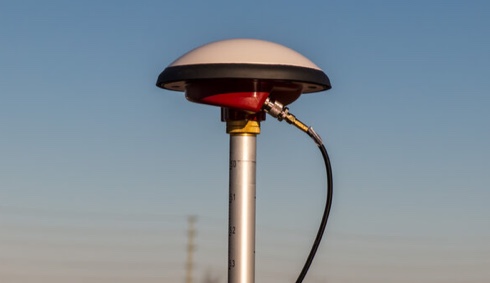
A new ESA-supported wide-bandwidth satnav antenna has been designed to receive both satellite and augmentation signals from anywhere in the sky, even down to just a couple of degrees above the horizon.
With a growing number of satnav constellations in operation, Canada-based Tallysman Wireless’s new VeroStar antenna aims to pick up all available signals, as well as support the availability of L-band correction service signals. Its development was supported through ESA’s Navigation Innovation and Support Program (NAVISP) programme.
Thome Group launches new Navigation Bridge Simulator
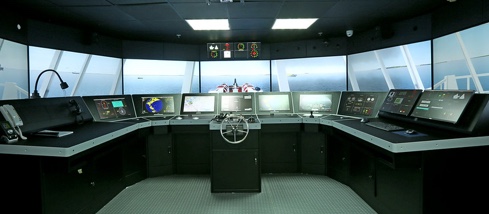
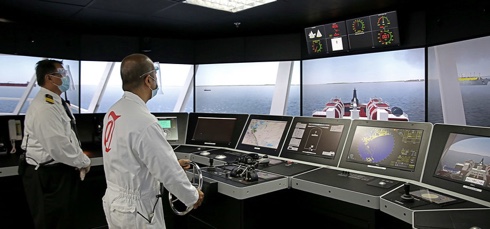
The Thome Group recognises the importance of its seafarers keeping pace with the rapidly changing technology on board today’s modern vessels which is why it has recently invested in the installation of a new Full Mission Navigation Bridge Simulator with a 320° view.
Using Kongsberg Digital’s latest K-Sim navigation simulator, trainees will be able to use equipment that looks, feels and has the same functions as real on board equipment, while operating in a safe training room environment.
The sophisticated new visual system brings to life geographic locations, different weather conditions and other nearby vessels so trainees can have better seascape and interact with multiple scenarios.
Autonomous driving on intelligent road at Europe’s edge

An ESA-supported effort put an intelligent road up in Finnish Lapland through its paces, assessing its suitability for testing autonomous vehicles in some of Europe’s most challenging driving conditions.
‘If autonomous vehicles can drive well here, they can drive almost anywhere.’ says Sarang Thombre of the Finnish Geospatial Research Institute, managing the Arctic-PNT project. ‘Our project aimed at ensuring in particular that the precise positioning required by autonomous systems was available here, to establish this test site is indeed somewhere that driverless vehicle manufacturers should employ for testing. We carried out experiments with a robotic car over two successive seasons to show that the necessary precise positioning, down to 20 cm, is indeed accessible.’
ICAO reports 2020 passenger totals drop 60%

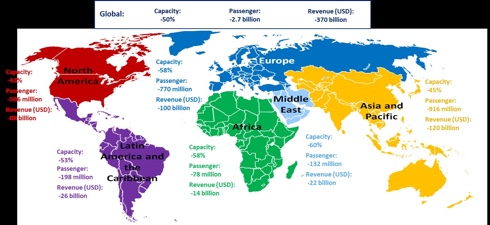
With its latest economic impact analysis of COVID-19 now completed, the UN agency for civil aviation has confirmed that international passenger traffic suffered a dramatic 60% drop over 2020, bringing air travel totals back to 2003 levels. This was announced from ICAO HQ in Montréal on 15 January 2021.
ICAO reports that as seat capacity fell by 50% last year, passenger totals dropped by 60% with just 1.8 billion passengers taking to the air during the first year of the pandemic, compared to 4.5 billion in 2019.
Its numbers also point to airline financial losses of $370 billion resulting from the COVID-19 impacts, with airports and air navigation services providers (ANSPs) losing a further $115 billion and $13 billion, respectively.
The latest IALA publications
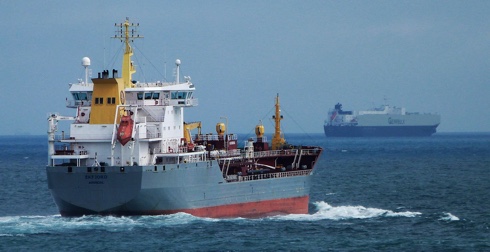
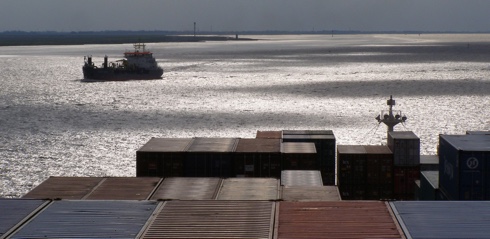
IALA is a non-profit, international technical association. Established in 1957, it gathers together Marine Aids to Navigation authorities, manufacturers, consultants, and scientific and training institutes from all parts of the world and offers them the opportunity to exchange and compare their experiences and achievements.
IALA encourages its members to work together in a common effort to harmonise Marine Aids to Navigation worldwide and to ensure that the movements of vessels are safe, expeditious and cost-effective while protecting the environment.
Taking into account the needs of mariners, developments in technology and the requirements and constraints of aids to navigation authorities, a number of technical committees have been established bringing together experts from around the world.
See IALA’s guidelines and recommendations.


